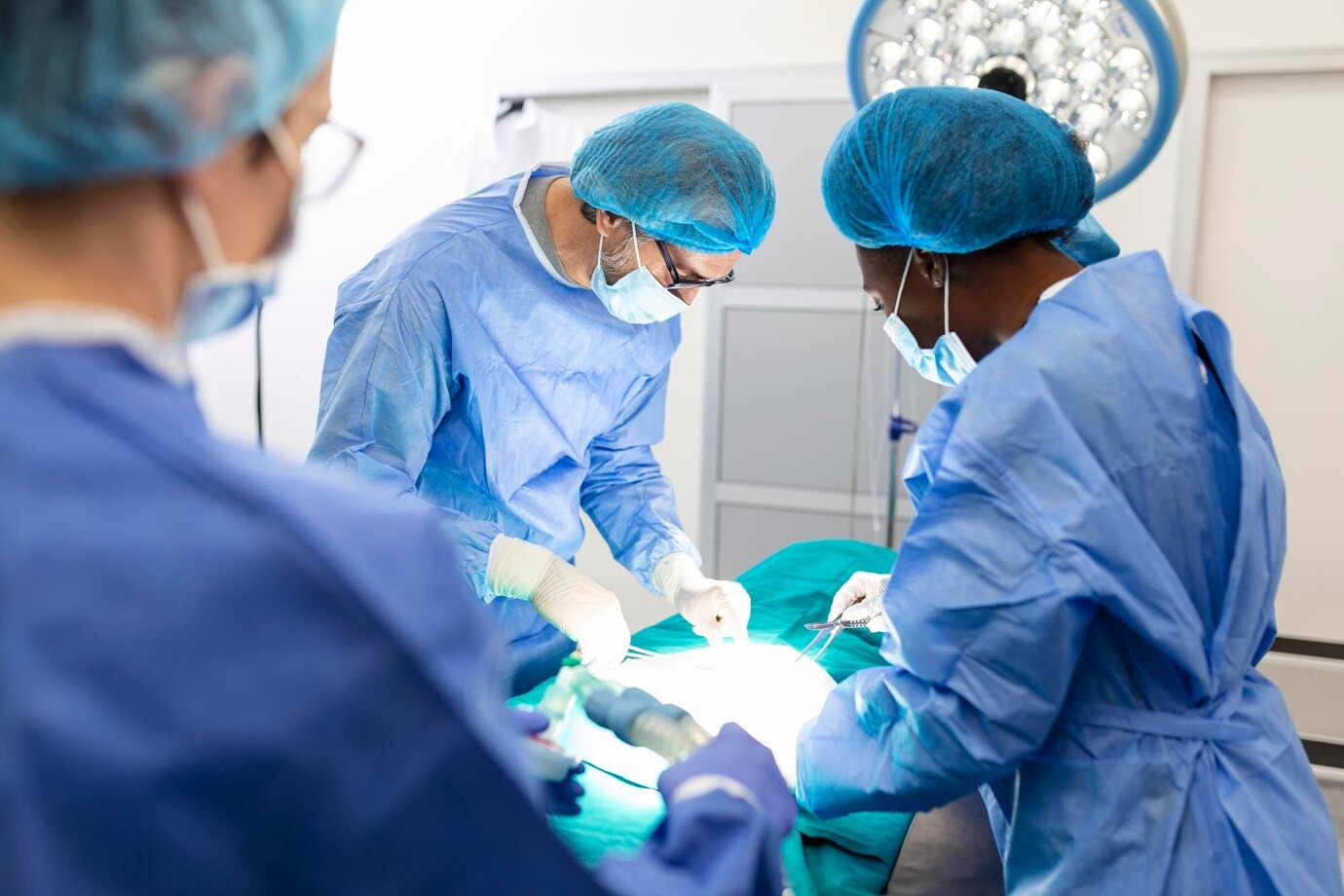Private Gallbladder Removal Surgery
Mr. Jasim Al-Musawi
Consultant General Surgeon
MBChB, FICMS, MRCP, FRCS
- 079 0367 0080
- info@jalsurgery.com
- Cromwell Hospital, The Clementine Churchill Hospital, Hendon Hospital

Private Gallbladder Removal Surgery
Expert Care for Gallstones and Gallbladder Disease
At JAL Surgery, we specialise in the diagnosis and surgical treatment of gallbladder conditions. If you are suffering from gallstone pain, repeated infections, or complications such as pancreatitis, our consultant surgeons can provide safe, effective gallbladder surgery private treatment through laparoscopic (keyhole) gallbladder removal, also known as laparoscopic cholecystectomy.
What is the Gallbladder and Why Remove It?
The gallbladder is a small pouch beneath the liver that stores bile. Gallstones can form within the gallbladder and cause pain, indigestion, nausea, and sometimes more serious problems such as infection or pancreatitis.
When gallstones cause symptoms, surgery to remove the gallbladder is the recommended treatment. The body can function perfectly well without it.
Common Conditions We Treat
We provide surgery for:
- Gallstones (Cholelithiasis)– hard deposits that cause pain, bloating, or indigestion.
- Gallbladder Inflammation (Cholecystitis)– infection or inflammation due to blocked bile ducts.
- Biliary Colic– intense abdominal pain caused by gallstones temporarily blocking the bile duct.
- Gallstone Pancreatitis– inflammation of the pancreas triggered by gallstones.
- Gallbladder Polyps or Other Disorders– when removal is advised.
Types of Gallbladder Surgery
Laparoscopic (Keyhole) Gallbladder Removal
- Performed through 3–4 tiny incisions.
- A camera and instruments are used to remove the gallbladder.
- Benefits include less pain, faster recovery, and minimal scarring.
- Most patients return home the same day.
Open Gallbladder Removal (Rare)
- Used only when keyhole surgery is not safe or possible.
- Involves a larger incision under the ribs.
- Slightly longer recovery period compared to laparoscopic surgery.
Why Choose Private Gallbladder Surgery with JAL Surgery?
- Rapid access– avoid long NHS waiting times.
- Specialist consultant surgeons with extensive gallbladder surgery expertise.
- Advanced laparoscopic techniques for quicker recovery.
- Personalised care– from consultation through to post-op support.
- Day-case surgery– most patients go home the same day.
What to Expect
- Consultation– full history, examination, and ultrasound review if available.
- Treatment Plan– discussion of surgery options and expected recovery.
- Day Surgery– laparoscopic cholecystectomy performed under general anaesthetic.
- Recovery– light activity within days; most return to work in 1–2 weeks.
Book a Consultation
If you have been diagnosed with gallstones or are experiencing symptoms such as abdominal pain, nausea, or repeated attacks of biliary colic, private surgery for gallbladder removal offers you fast, effective, and lasting relief.
Here are our other services:
Private Gallbladder Removal Surgery FAQ's
How long does it take to recover from a Gallbladder operation?
Recovery time after gallbladder surgery depends on whether it’s laparoscopic or open surgery. For laparoscopic, most people return to normal activities in about 1–2 weeks. Open surgery can take 4–6 weeks. Light activities can usually start quickly, but heavy lifting and strenuous work should wait until your doctor approves.
Do and don'ts after Gallbladder surgery?
Do’s: Walk daily to improve circulation, eat small meals, drink plenty of water, and follow your doctor’s advice.
Don’ts: Avoid heavy lifting, fatty or fried foods, and drinking alcohol for the first few weeks. Don’t skip follow-up visits. Always listen to your body—rest if you feel tired or sore.
What to eat after Gallbladder surgery?
After surgery, it’s best to start with light, low-fat foods like soups, oatmeal, rice, boiled potatoes, and steamed vegetables. Avoid fried foods, spicy meals, and high-fat dairy, as these may cause discomfort or diarrhea. Gradually reintroduce foods, focusing on a balanced diet to help your digestion adjust smoothly.
How long does a Gallbladder surgery take?
Gallbladder removal surgery usually lasts between 1 to 2 hours. Laparoscopic surgery often takes less time and allows quicker recovery. Open surgery may take longer depending on the patient’s condition. The total time at the hospital is longer since it includes preparation, anesthesia, and post-surgery recovery monitoring.
Is Gallbladder surgery painful?
Gallbladder surgery is done under anesthesia, so you won’t feel pain during the procedure. Afterward, mild to moderate discomfort is common, especially around the incisions or in the shoulder due to gas used in laparoscopic surgery. Pain usually improves within days and is manageable with prescribed medications.
Cost of Private Gallbladder Removal Surgery?
The cost of private gallbladder removal surgery can vary depending on factors such as the surgeon’s experience, the facility, and the level of aftercare provided. If you want to find out a more accurate price range, please contact Dr Jasim Al-Musawi at jalsurgery.
